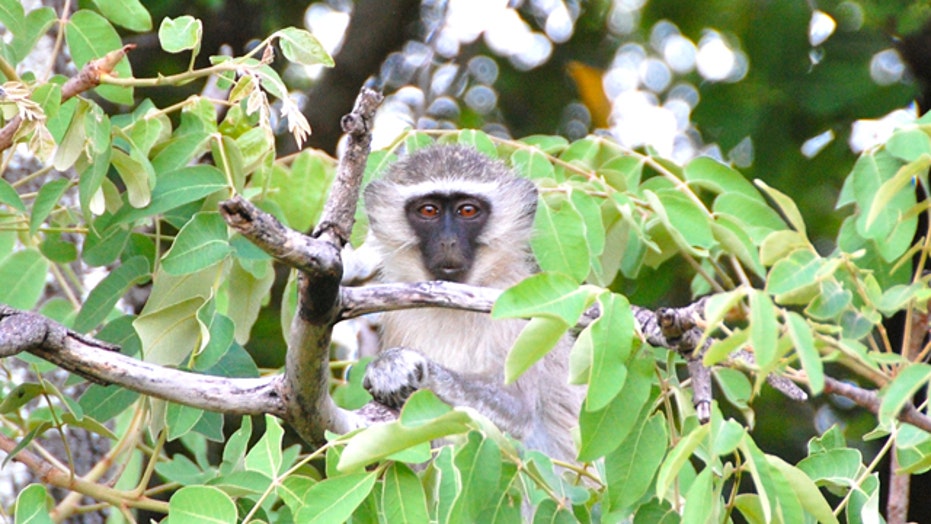It’s a great time to buy, or so we're told, and land deals can be had everywhere, and I mean everywhere.
In fact, there’s a great deal on a farm that’s likely not the same as any you’ve seen before. Built in 2002, it’s a retreat like no other that sits right near a world heritage site and ideally close to a popular national park. If that doesn’t catch your attention, then how about a farm that is already fully fenced, and electrified to keep your livestock in and poachers out.
I’m sure that last line may have shocked you a bit (pun intended), but if the ‘big 5’ happens to be in your neighborhood, then an electrified and fortified fence is a must. Of course the ‘big 5’ are the lion, leopard, rhino, elephant and Cape buffalo, and the farm isn’t situated in the corn fields of rural Iowa, but just outside Johannesburg, South Africa.
In this poor economy, it seems that now more than ever, it is possible to own your very own African game reserve, park or lodge. From the Mopane Bush Lodge with eight luxurious suites and access to Mapungubwe National Park, to a lodge just outside Pretoria South Africa that boasts Impala, Zebra, Giraffe and Wildebees, all are for sale and surprising affordable.
Prices can be in the high hundreds of thousands of dollars to well into 7 digits. Mopane Bush Lodge for example is going for as low as $1.3 million. But owning one, or a piece of one, is more than possible.
Like vineyards, wineries, private parks and even islands, some Americans are investing in property a bit out of the norm, dropping 1.5 million to buy one of these African parks for example. There are some game parks and lodges can be had for less, or if you just want a membership in a reserve that’s even cheaper, but when you consider the prices of second homes in Los Angeles and New York, setting your sights on your own steenbok isn’t so pricey.
“Reserves are part of the balance and we need to restore that balance, these parks are mostly doing that and that’s a good thing,” says Jacques VanWijk who runs the privately owned Makweti Lodge in the Welgevonden Game Reserve. Along with his wife Mareza, they are native to this area of South Africa and they mostly agree with anyone investing in wildlife and reserves.
Since the early 1990’s, South Africa has seen an explosion of these private lodges and reserves and neighboring countries like Namibia and Botswana are also seeing a significant increase. In fact, there are lodges and game reserves for sale across the continent, with the great majority intent on preservation -- not hunting. Welgevonden is one of those reserves set on preservation, where biologists continue to study and breeding programs allow the visitor an unbelievable view of wild Africa. “It’s everything in a small package,” says Jacques.
In South Africa ads for parks and land can be found in newspapers, magazines and even billboards along rural country roads. Here in the U.S., a simple Internet search reveals hundreds of listings, including a private game ranch in a malaria free area that’s fully game fenced with an electrified buffalo encampment.
Most cater to the environmentally conscious, so they can help preserve Africa’s dwindling wildlife population and keep out the thriving poaching industry.
On my recent trip to the region I was surprised to know several of my American friends who either are invested themselves, or have family who own lodges or small reserves in South Africa. The DeWet family in Napa, California is originally from the country and has relatives who decided to buy a small reserve and another friend in Northern California has relatives who retired to a smaller African retreat that specializes in animal preservation.
Meantime, Makweti is owned not by a South African, but by New York family Dr. Alan Kisner and his wife Dawn. While they use the location for family stays, they also rent their stunning location as a lodge for travelers most of the year. Dr. Kisner says they always wanted to invest in a park and lodge, but waited until the rise of Nelson Madela and the fall of apartheid before looking to buy. He says possible investors need to know that it has to be a “real passion” and that it truly is “the wave of the future to preserve native lands and wildlife.”
Like other private parks in the southern part of the African continent, Welgevonden has expanded quickly as investors capitalized on opportunities to expand, buying up neighboring smaller parks and hunting farms and then reconverting the land. Since its founding in 1993, the reserve is one of the largest private investments in conservation in the world and investors can still buy locations within the park to build a private home for example.
As for Makweti, Dr. Kisner says his wife runs the day-to-day operations of the lodge from New York via phone and Internet and both make frequent visits to South Africa. He says it is rewarding being involved in the animal conservation like white rhino, lion and elephant, but it can get expensive depending on whether you own a private home, reserve, or develop a lodge. Overall he tells me, “It’s a worthwhile experience."
So whether you are a lover of animals, a diehard conservationist, or one of the lucky with a chunk of money in the bank to spend, the ability to preserve and selfishly see such amazing sights on a daily basis is unprecedented. So why not buy your own safari? Ownership does have its privileges.

